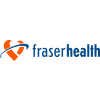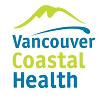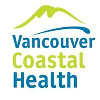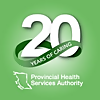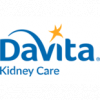Detailed Overview
In accordance with the British Columbia College of Nurses and Midwives (BCCNM) standards of practice and the Mission and Values of Fraser Health, the Registered Nurse / Registered Psychiatric Nurse works collaboratively and in partnership with the interprofessional care team in the provision of person-centered care to assess, identify, plan, implement, coordinate and evaluate nursing care required to patients experiencing problematic substance use.
Demonstrates nursing expertise and provides clinical leadership in evidence-based practice through direct care activities including nursing assessments, crisis intervention, treatment and group facilitation, referrals to identified sources, patient and family teaching, and health promotion activities.
Supports other nurses and health care professionals by collegially sharing information and demonstrating procedures. With an emphasis on recovery and rehabilitation, reducing barriers to enter the system of care, and promoting a culturally-safe and responsive, trauma-informed approach, establishes a welcoming therapeutic environment and promotes client self-determination and independence.
Responsibilities Plans and provides direct nursing care to patients in compliance with standards of practice by reviewing patient status, performing activities such as reviewing client / family history, patient chart and other written information, patient observation, conducting physical / psychosocial assessments, interviewing patient and natural supports, completing questionnaires, and consulting with colleagues and other members of the health team.
Assesses patient needs, and plans, implements, evaluates and prioritizes nursing care and nursing interventions to develop a care plan specific for the patient using clinical judgement and evidence-based practice, in collaboration with other members of the health care team.
Makes referrals to other identified resources as required. Provides general and crisis counselling to patients who present to the Emergency Department, including short-term follow-up in accordance with approved treatment plans authorized by the Emergency Room Physician or consulting physician.
Collegially shares information with Emergency Nurses regarding the processing of physician's orders such as initiating unit standing orders, administering medications, carrying out treatments and monitoring and documenting the effects;
processes physician orders as assigned. Manages emergencies including drug overdose, heart attack, assaultive behaviour and seizures through methods such as providing direct nursing interventions, responding in a manner appropriate to the emergency and in accordance with established policies and procedures such as initiating CPR and / or alerting ambulance and / or police.
Establishes and maintains effective relationships with Emergency, Addictions Medicine, and other interdisciplinary team members in order to facilitate communication and decision making around client care, identify and resolve patient / family issues, identify gaps in services, and improve services to individuals with substance use issues.
Consults and collaborates with interdisciplinary team members by participating in patient care conferences, rounds and staff meetings and contributing information.
Assesses the learning needs of patients and their families in order to determine what instruction they require, such as providing and explaining information, demonstrating procedures and use of equipment, checking the learner's use of procedures, techniques and equipment, or planning, coordinating and delivering educational sessions.
Facilitates education sessions for patients, family members, service providers, and community agencies on topics such as withdrawal management, relapse prevention, stress management, illness prevention, health maintenance and health promotion strategies, self care, problem solving and coping skills.
Evaluates the overall effectiveness of the selected teaching methods and outcomes of learning. Acts as a clinical resource / support person to patient and family as required, and nursing and health care professionals by explaining the theoretical rationale for nursing decisions and providing clinical consultation to Mental Health Care Workers.
Participates in training, orientation and continuing education of nursing staff and students through mentoring, preceptoring and role-modelling.
Maintains clinical records through methods such as collecting and documenting information including electronic health care information in systems such as Meditech regarding patients and their families, nursing observations, telephone communications, progress notes, interventions, themes worked on during interventions, teaching, care evaluations, patient outcomes and discharge summaries to ensure that patient / family records are current and complete.
Advocates for patients to protect and promote their rights to dignity, respect, privacy, confidentiality, autonomy and access to information.
Participates in quality improvement and risk management activities such as identifying and reporting high risk situations, evaluating effect of changes in nursing practice, generating recommendations for alternative approaches to nursing practice, conducting safety audits and identifying needs for corrective action and changes to selected practices, procedures or protocols.
Maintains a safe environment for patients, visitors and employees by adhering to established safety and emergency practices and procedures and reporting any risks and anomalies to the Patient Care Coordinator.
Participates in program development and in the delivery of clinical services through methods such as actively participating in internal conferences and by participating in the development, implementation and evaluation of new or existing patient program activities and treatment approaches.
Identifies own learning needs / goals, reviews these with the Patient Care Coordinator and engages in a variety of activities to meet these needs / goals.
Participates in the development, implementation and evaluation of policies / procedures and interpreting same to patients, other agencies and the public and referring unusual inquiries to Patient Care Coordinator.
Performs other related duties as assigned. Qualifications Education and Experience Graduation from an approved Nursing Program with current practicing registration as a Registered Nurse and / or Registered Psychiatric Nurse with the British Columbia College of Nurses and Midwives (BCCNM).
Completion of approved addictions or substance use training, or substance use certificate program, and one year's recent related experience working in an addictions environment with individuals with substance use disorders, or an equivalent combination of education, training and experience.
Successful completion of St. John's Ambulance Safety Orientated First Aide Certificate and current Cardiopulmonary Resuscitation Certificate (CPR) level C.
Skills and Abilities Ability to complete initial and ongoing mental health and substance use patient assessment and provide nursing care through appropriate / prescribed technical, therapeutic, safety type interventions including crisis intervention.
Knowledge of mental illness and substance use treatment. Knowledge of psychopharmacology (indications and side-effects).
Knowledge of counselling and group facilitation skills. Knowledge of legislation and government policies and procedures that relate to mental health and substance use practices.
Ability to communicate effectively verbally and in writing with patients, families / care givers, the public, medical staff and members of the interprofessional care team.
Ability to promote person-centered care that demonstrates empathy for patients / families / care givers, sensitivity to diverse cultures and preferences, including advocacy for special populations.
Ability to educate patients and families / care givers about topics essential to their health care and well-being. Ability to organize and prioritize work.
Ability to collaborate with and promote cooperation among members of the interprofessional care team. Ability to use factual information and basic principles and procedures to support nursing decisions and actions with relevant research-based evidence / evidence-informed practice.
Ability to operate related equipment including relevant computer applications. Physical ability to perform the duties of the position.
